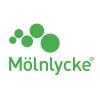One year from lockdown, a new survey of healthcare professionals working in operating theatres across the NHS and private sector has revealed the devastating impact of Covid-19 on elective care procedures across the UK in the last 12 months.
- 70% of respondents said they are concerned about the backlog of procedures at their hospital trust.
- 68% believe that delays to surgical procedures are having a negative impact on patient outcomes.
- 68% of respondents also said that the delays to surgical procedures are having a negative impact on the morale of staff.
With over 4 million patients now waiting to start their elective treatment, the new survey of over 500 surgical professionals has laid bare their perceptions of the impact of Covid-19 on elective care. 71% of respondents stated that the number of patients waiting more than 18 weeks for elective care had increased in their hospital since March 2020. Of those, over half of respondents (55%) said that it would take at least a year for their hospital trust to meet the 18-week referral to treatment target.
The survey revealed the ways in which Covid-19 was causing delays to elective care, with healthcare professionals identifying the main causes for delays in their hospital. They identified prioritisation of hospital beds (26%), cancellations (25%), re-prioritisation of staff (23%) and extra theatre and kit preparation (22%) as the top four causes of the elective backlog in their hospital trust.

The survey also demonstrated that healthcare professionals viewed some positive outcomes of the Covid-19 pandemic on the way the NHS delivers care.
- 72% of respondents agreed that Covid-19 has resulted in some changes to their service which should be maintained after the pandemic, such as improved infection prevention protocols or the introduction of new innovations into every day care.
- 72% of respondents agreed that Covid-19 has resulted in the increased importance of prevention of healthcare-associated infections, including Surgical Site Infections, at their hospital trust.
- 41% of respondents said that Covid-19 has made their hospital focus more on reducing all types of healthcare-associated infections.
The survey also sought the perspectives of elective care professionals on how they could be supported to reduce the backlog. 71% of respondents agreed that greater value-based procurement decisions could support patient outcomes, and 71% stating that they would welcome support from external organisations on how they could improve efficiencies in the operating theatre.
With patient demand only set to increase across a range of clinical areas in the months ahead, there is now a clear case for increasing capacity in the coming months based on a comprehensive plan and funding for how this should be achieved.
Responding to the findings of the survey, Lindsay Keeley, Patient Safety & Quality Lead at the Association for Perioperative Practice said: “With the impact of Covid-19 emerging across the NHS, demands are set to rise disproportionately for elective care procedures. The AfPP is deeply concerned about the effects of the backlog, not only on patients’ health as they await vital treatment, but also the impact on workforce capacity and morale.
“All of us, as healthcare professionals, need to adapt and overcome the barriers we face in order to create capacity and claw back productivity.
“We must also ensure that we build on the positive drivers for change which have emerged in the last year, such as the heightened awareness of reducing healthcare-acquired infections in elective care, by embedding best practice infection prevention procedures across the NHS.”
John Timmons, International Medical Director, Mölnlycke, added: “Even prior to the Covid-19 pandemic, the NHS faced considerable pressures in meeting patient demand for elective care.
“This survey demonstrates the considerable impact of Covid-19 on both staff morale and patient outcomes. It is clear that recovering elective care procedures safely and sustainably should be a clear priority for the Government as it seeks to build back better from the pandemic.
“Mölnlycke is undertaking a range of programmes this year to help the NHS build back better in elective care, supporting hospitals to work smarter, not harder and drive efficiency across care pathways.”
The survey was conducted in December 2020 by Censuswide for Mölnlycke®, a world-leading medical solutions company.



















